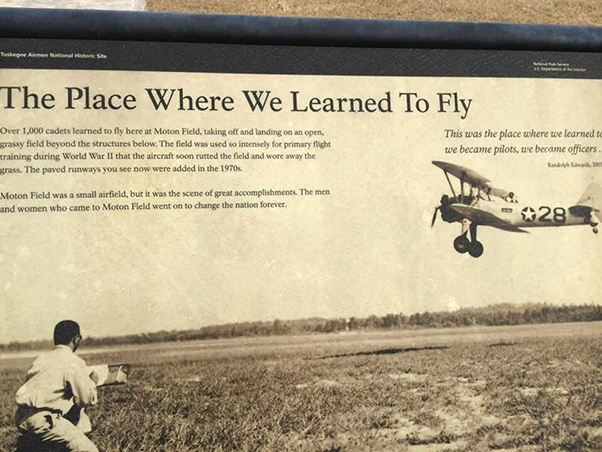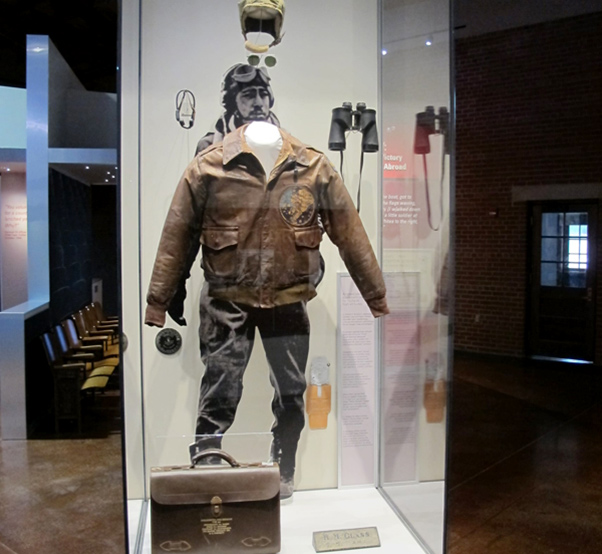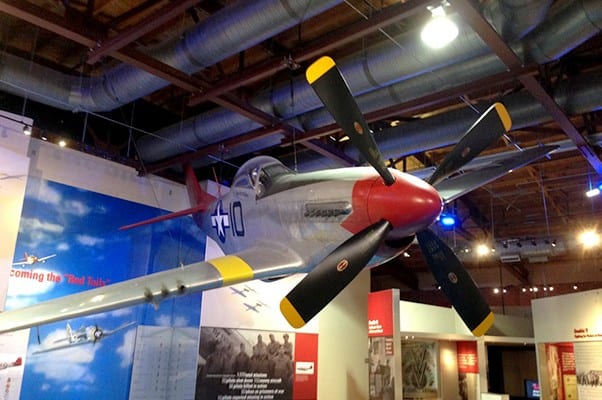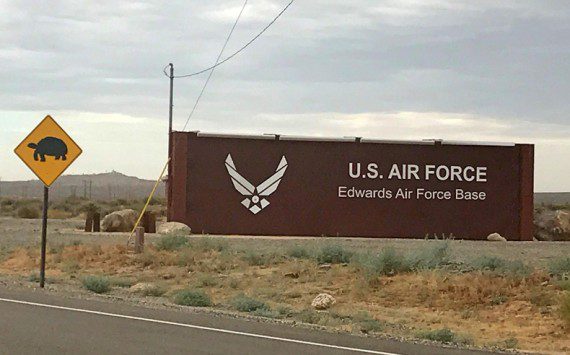The Tuskegee Airmen National Historic Site, at Moton Field in Tuskegee, Ala., commemorates the contributions of African American airmen in World War II.
Before 1940, African Americans were barred from flying for the U.S. military. Civil rights organizations and the black press exerted pressure that resulted in the formation of an all African-American pursuit squadron based in Tuskegee, in 1941. They became known as the Tuskegee Airmen.
Moton Field was the site of primary flight training for the pioneering pilots known as the Tuskegee Airmen, and is now operated by the National Park Service to interpret their history and achievements. It was constructed in 1941 as a new training base. The field was named after former Tuskegee Institute principal Robert Russa Moton, who died the previous year.
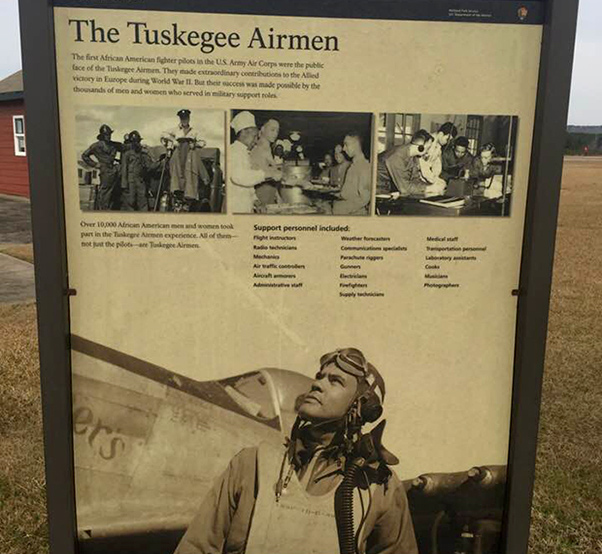
Before 1940, African Americans were barred from flying for the U.S. military. Civil rights organizations and the Black press exerted pressure that resulted in the formation of an all African-American pursuit squadron based in Tuskegee, in 1941. They became known as the Tuskegee Airmen.”
Tuskegee Airmen” refers to all who were involved in the so-called “Tuskegee Experiment,” the Army Air Corps program to train African Americans to fly and maintain combat aircraft. The Tuskegee Airmen included pilots, navigators, bombardiers, maintenance and support staff, instructors, and all the personnel who kept the planes in the air.
The military selected Tuskegee Institute to train pilots because of its commitment to aeronautical training. Tuskegee had the facilities, and engineering and technical instructors, as well as a climate for year-round flying. The first Civilian Pilot Training Program students completed their instruction in May 1940. The Tuskegee program was then expanded and became the center for African-American aviation during World War II.
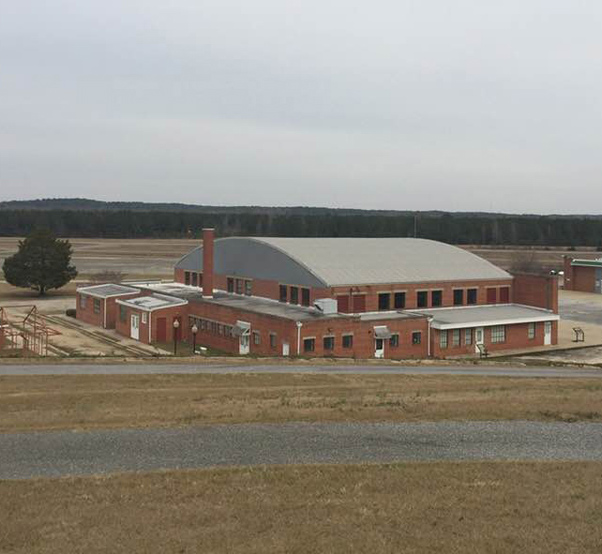
Established on Nov. 6, 1998, the National Historic Site was placed on the National Register of Historic Places the same day. The site has a temporary visitor center. Hangar One has been restored and the grand opening of the site was Oct. 10, 2008. The Hangar One Museum is open for tours Wednesday-Sunday. Tours are free of charge to the public.
An oral history project, consisting of interviews of hundreds of people involved in the Tuskegee Experience, was completed in 2005 and will eventually be available to the public.
For more information, visit https://www.nps.gov/tuai.

